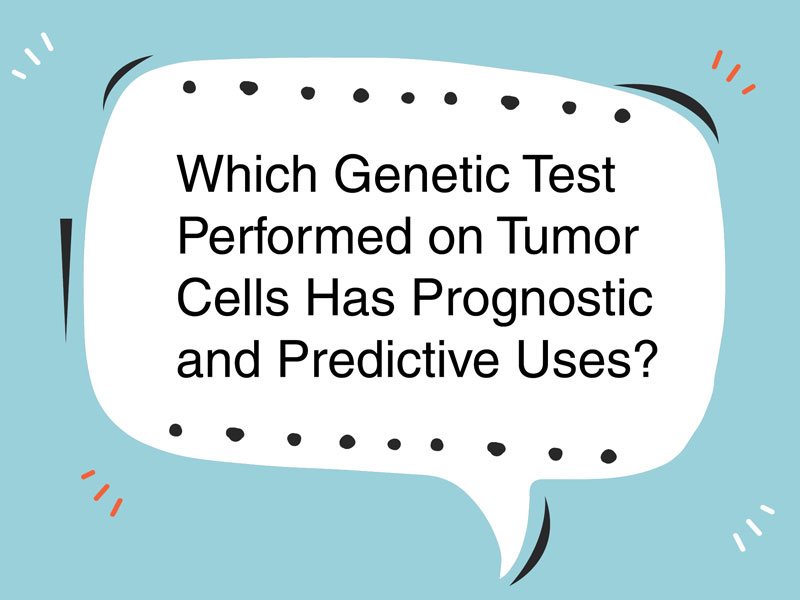National Capital Chapter Members Focus on Advocacy and Research Funding in DC

In our nation’s capital, healthcare policy meetings occur weekly for various government and private organizations whose aim is to improve care and conditions for patients with cancer. The ONS National Capital Chapter members are involved in lobbying on the Hill and attending meetings about improving cancer care through the ONS Capitol Hill Gang.
- Read more about National Capital Chapter Members Focus on Advocacy and Research Funding in DC
- Add new comment
BRCA Mutations Point to Hereditary Breast and Ovarian Cancer Syndrome

Although all cancers have a genetic basis, a subset result from an inherited (i.e., germline) mutation that puts a person at increased risk for certain cancers. Unfortunately, the signs of hereditary cancer are often overlooked or misunderstood. Here’s what oncology nurses need to know about BRCA mutations, one of the more common mutations you’ll see in practice.
- Read more about BRCA Mutations Point to Hereditary Breast and Ovarian Cancer Syndrome
- Add new comment
Which Genetic Test Performed on Tumor Cells Has Prognostic and Predictive Uses?

Which Genetic Test Performed on Tumor Cells Has Prognostic and Predictive Uses?
A. BRCA1 test
B. CA 27.29
C. Circulating tumor cells
D. Oncotype DX®
- Read more about Which Genetic Test Performed on Tumor Cells Has Prognostic and Predictive Uses?
- Add new comment
House and Senate Pass the Childhood Cancer STAR Act

On May 22, the U.S. House of Representatives passed S.B. 292, the Childhood Cancer Survivorship, Treatment, Access, and Research (STAR) Act. The legislation will improve efforts to identify and track childhood cancer incidence, improve quality of life for childhood cancer survivors, ensure pediatric expertise at the National Institutes of Health by requiring the National Cancer Advisory Board to have at least one pediatric oncology expert on its board, and identify opportunities to increase childhood cancer research to better treat the 10,270 children diagnosed with cancer in the United States every year.
Pharmacology Update Session Gives Oncology Nurses the Essentials on New Drug Approvals
If it seems like a new oncology drug or indication comes to market every month, you wouldn’t be wrong. The U.S. Food and Drug Administration (FDA) has approved a record number of oncology agents in 2017 and 2018. Teresa Knoop, MSN, RN, AOCN®, assistant director of clinical operations at the Clinical Trials Shared Resource at Vanderbilt-Ingram Cancer Center in Nashville, TN, gave an update on the latest therapies during a session at the 43rd Annual Congress in Washington, DC.
- Read more about Pharmacology Update Session Gives Oncology Nurses the Essentials on New Drug Approvals
- Add new comment
Oncology Nurses Have a Responsibility to Identify and Prevent Opioid Abuse in Patients With Cancer
As the opioid abuse epidemic prevails in the United States, patients with cancer can be affected. Yu-Ping Chang, PhD, RN, FGSA, associate dean for research and scholarship in the School of Nursing at the University at Buffalo in New York, and Tonya Edwards, MS, MSN, BSN, FNP-C, a nurse practitioner of supportive care at MD Anderson Cancer Center in Houston, TX, discussed how the opioid epidemic affects patients and how to identify and prevent opioid and substance abuse during a session at the 43rd Annual Congress in Washington, DC.
- Read more about Oncology Nurses Have a Responsibility to Identify and Prevent Opioid Abuse in Patients With Cancer
- Add new comment
Financial Toxicity Discussion Needs to Include Undocumented Patients

Financial toxicity in cancer care is an increasingly recognized burden for many patients. Driven by many factors, financial toxicity is often a combination of a patient’s individual characteristics, the costs associated with care, and the overall impact of the illness on a patient’s ability to work throughout the cancer journey. Financial toxicity negatively impacts patient outcomes, and many patients struggle with costs regardless of whether they’re covered by health insurance—this includes undocumented immigrants. Currently, more than 11.1 million undocumented immigrants live in the United States, and they aren’t immune to cancer diagnoses.
How to Have Ethical Discussions in Your Practice

Having an outlet to consider, discuss, and reflect on oncology ethical issues that affect our daily practice is important in caring for each other in our profession. On our solid tumor oncology unit, monthly nursing ethics lunch and learns allow our nurses the opportunity to identify and discuss their concerns with recent patient cases involving ethical issues. Our hospital’s ethics committee chair facilitates the hour-long discussions held on the unit, along with a senior oncology nurse with significant training and background in clinical ethics.
Small Steps Toward Sun Safety Can Make a Big Difference

I haven’t always been convinced of the importance of sun safety. In my younger years, I got more sunburns than I’d like to admit in an attempt to develop a tan. In college, I spent afternoons studying outside on a sunny quad with nothing more than shorts and a tank top for sun protection.
Better Care Is Needed to Manage Oral Cavity Symptoms of Chronic Graft-Versus-Host Disease
During the State-of-the-Science Lecture at the 43rd Annual Congress in Washington, DC, Jane Fall-Dickinson, PhD, RN, AOCN®, of Georgetown University School of Nursing and Health Studies, discussed chronic graft-versus-host disease (cGVHD), specifically its oral cavity complications. She presented challenges, clinical data, and goals for improving its treatment and management options.





